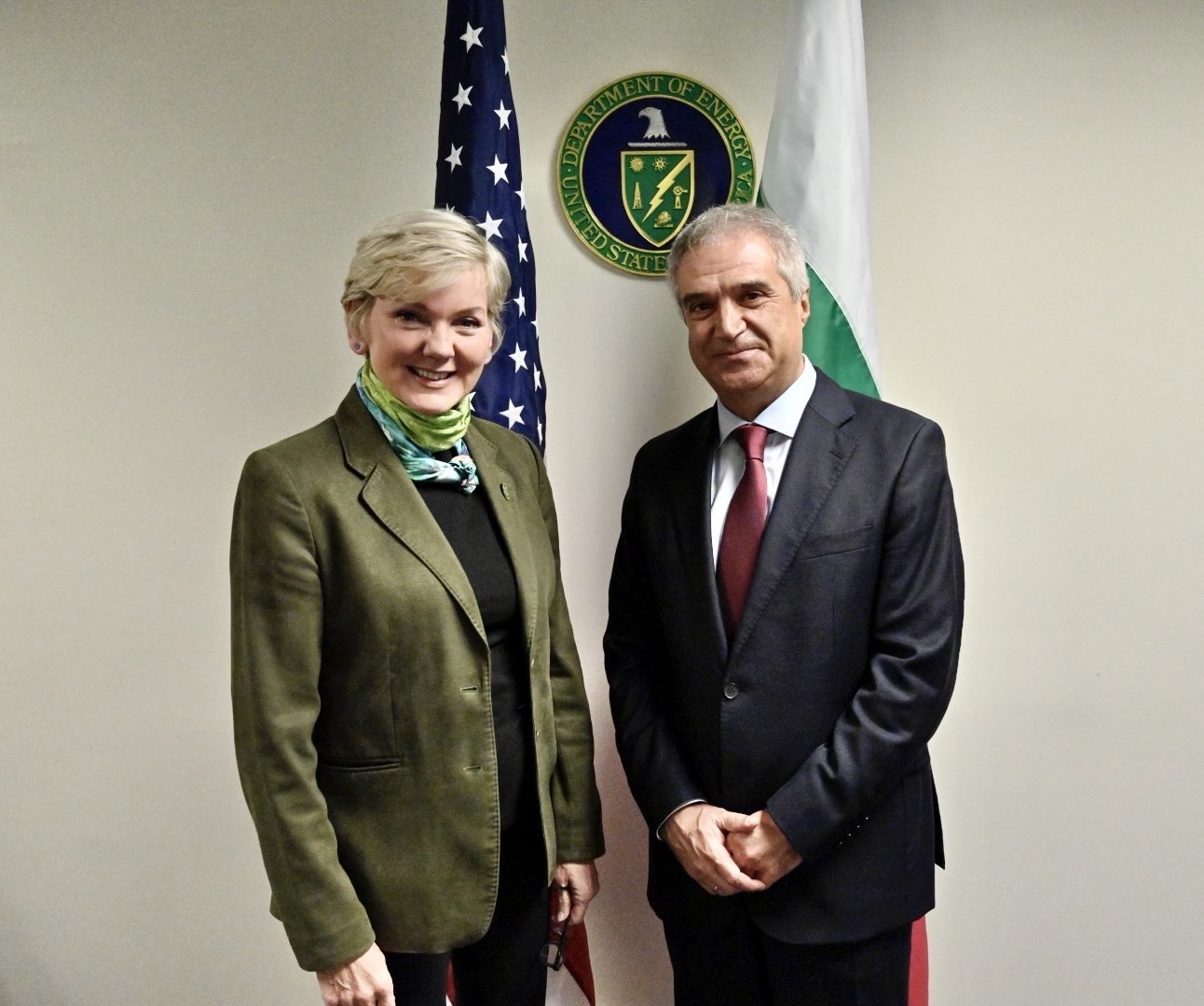Energy security, diversification and new nuclear capacities were highlights of the meeting of Bulgarian ministers with the U.S. Energy Secretary in Washington
Rumen Radev and Assen Vassilev also spoke with Assistant Secretary of State for Energy Resources Geoffrey Pyatt, as well as other representatives of the U.S. State Department
Cooperation in the field of nuclear technologies for civil purposes, the construction of new AP-1000 reactors at Kozloduy NPP, cooperation and training of personnel in the energy sphere, diversification, energy security and connectivity were the main topics discussed during the meeting of the Ministers of Energy and of Finance of the Republic of Bulgaria, Rumen Radev and Assen Vasilev, with U.S. Energy Secretary Jennifer Granholm in Washington. The visit is of strategic importance, as energy occupies a central place in the bilateral dialogue between Bulgaria and the U.S.A. Key topics of the conversation at the Department of Energy were the transition to renewable energy sources and innovative technologies, as well as limiting carbon emissions.
Minister Radev shared his satisfaction with the deepening of bilateral cooperation on the construction of new nuclear facilities and emphasized that it is important to focus efforts on the exchange of knowledge and practice for the long-term storage of spent nuclear fuel. He welcomed the USA for the speed and incentives they are applying to realize the development, deployment and distribution of hydrogen technologies in the heavy industry and transport sectors.
"The European Union and the United States remain world leaders in the development of new technologies related to the production and use of green hydrogen. This is the future energy resource that will not only allow us to achieve climate neutrality, but will also boost industry and support the creation of new jobs," Radev said. U.S. Secretary of Energy Jennifer Granholm informed about the creation of 7 hydrogen hubs in the U.S.A. and partnership opportunities. Minister Radev emphasized that cooperation and the establishment of cross-border contacts is becoming the leading issue for energy security and sustainability. He also presented Bulgaria's new initiative for the construction of joint infrastructure between Bulgaria, Romania and Greece, including offshore wind, RES, hydrogen and charging stations, as well as the launch of a new joint project between Bulgaria and Romania for a large hydroelectric plant on the Danube River, and emphasized the importance of this innovative approach to energy security in the region.
Minister Vassilev expressed his appreciation for the American support in our country's efforts to diversify energy sources and reduce dependence on a single supplier. "Cooperation in the field of energy between the two countries contributes to increasing the energy security and diversification not only of our country, but also of the entire Balkan region," underlined Vassilev. He placed special emphasis on the North-South project, which aims to create optimal connectivity of the energy, digital and transport systems of Romania, Bulgaria and Greece. "Regarding the expiring gas transit contract between Russia and Ukraine, the Southern Gas Corridor and the North-South connectivity will acquire greater importance," Vassilev commented. He reiterated the need for diversity in energy sources, especially in the context of the Russian aggression against Ukraine, which has exposed the vulnerabilities of Europe's energy security.
Energy Secretary Jennifer Granholm expressed her gratitude for the opportunity for cooperation between the U.S.A. and Bulgaria in the field of civil nuclear technologies.
Nuclear energy and diversification were also in focus at the meeting of the two Bulgarian ministers at the U.S. State Department, where they spoke with Assistant Secretary of State for Energy Resources Geoffrey Pyatt.
"Bulgaria deserves high appreciation for the work done in securing alternative gas sources and corridors," Geoffrey Pyatt noted. The U.S. State Department takes as a good sign the fact that Bulgaria, Romania and Greece are working together on the North-South project.

